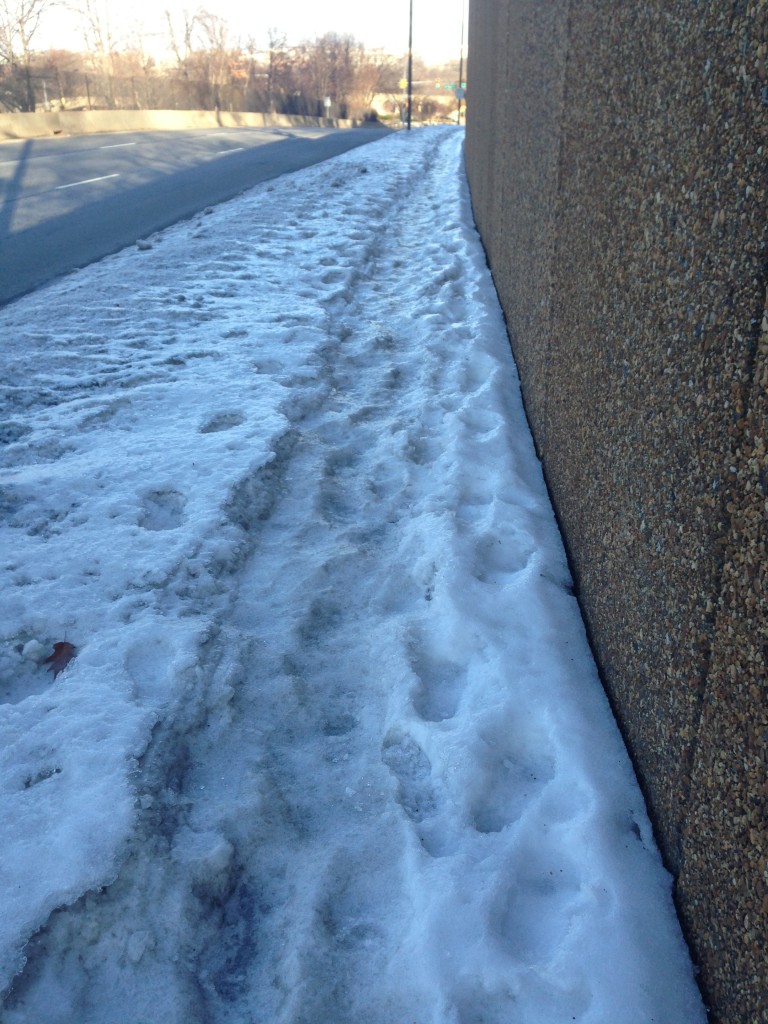
Yesterday was my first day of attempting to be “Taoist” in my daily routine. I had to work at my company’s client site for a few hours, but due to some contracting issues, I didn’t have anything to do after that. So at around 2 PM I decided to just go home and take a nap.
The nap was brilliant. Instead of looking for fake work to do and appear busy, I slept for an hour and woke up super refreshed.
Following my nap, I decided to take a nature walk to Roosevelt Island.
We’ve had some strange weather, and the sidewalk on the way to Roosevelt Island was, in places, completely frozen over. Naturally, I looked like a newborn deer trying to stand up. I bet I looked incredibly graceful to the drivers that drove by me….
Now, the more I tried to actively stabilize myself on the ice, the more I slipped. I tried too hard to stand, and as a result, I slipped.
What I discovered after several more minutes of looking foolish, is that if I ran on the ice (as opposed to walking slowly and carefully on it), I would not slip. It took less effort to go faster than to stay still.
This way of walking on ice is counterintuitive. The safer method, running, seems more dangerous than simply trying to move slowly and methodically, which, I found out, could kill you.
This is the sort of paradox that Taoism embodies. The seemingly hard is easy, the seemingly easy is hard.
Via Tao Te Ching – Chapter 55
It is not wise to rush about.
Controlling the breath causes strain.
If too much energy is used, exhaustion follows.
This is not the way of Tao.
Whatever is contrary to Tao will not last long.
I eventually made it to Roosevelt Island and spent a half hour just walking around. I even spotted two actual deer that looked far more capable in their movements through the snow and ice than I did. They must have this whole Taoist ice-walking thing mastered.
Then, I walked home on a less icy route than the one I used to get to the island.
Thoughts
There was something very pleasant and natural about my day. I wasn’t more “productive” at work in the sense that I used my free time to get more things done. No boss would be happy about my nap.
But to me, it was far better than pretending to be busy and getting only insignificant things done (or nothing at all, depending on how much web surfing I do).
I was tired, so I slept.
I felt like taking a walk, so I took a walk.
Now, I’m fortunate that in my job I don’t really have anyone looking over my shoulder at all times. But I wonder how difficult it would be to implement a Taoist way of working in the office.
For example, during the post-lunch afternoon slump, instead of trying to get things done at your desk, perhaps you could just sit and do nothing, a sort of open-eyed napping if you will.
Or, if you are feeling even ballsier, just go out to your car and take a nap.
Would we feel enlightened about our new found wu-wei approach to post-lunch slumps? Or would we feel guilty for not even making the attempt to work?
Perhaps I’m just trying to find ancient rationalizations for taking naps at work…